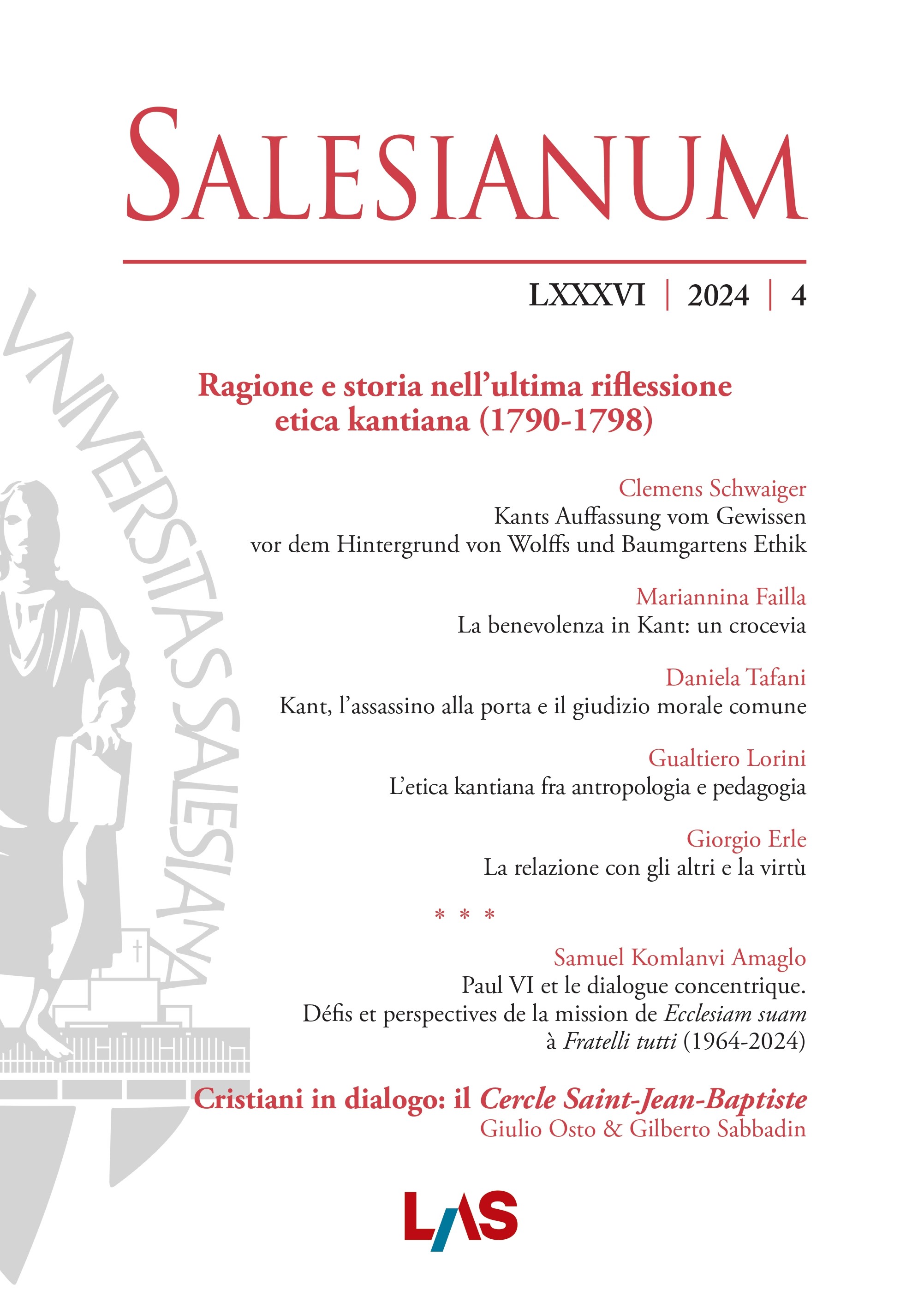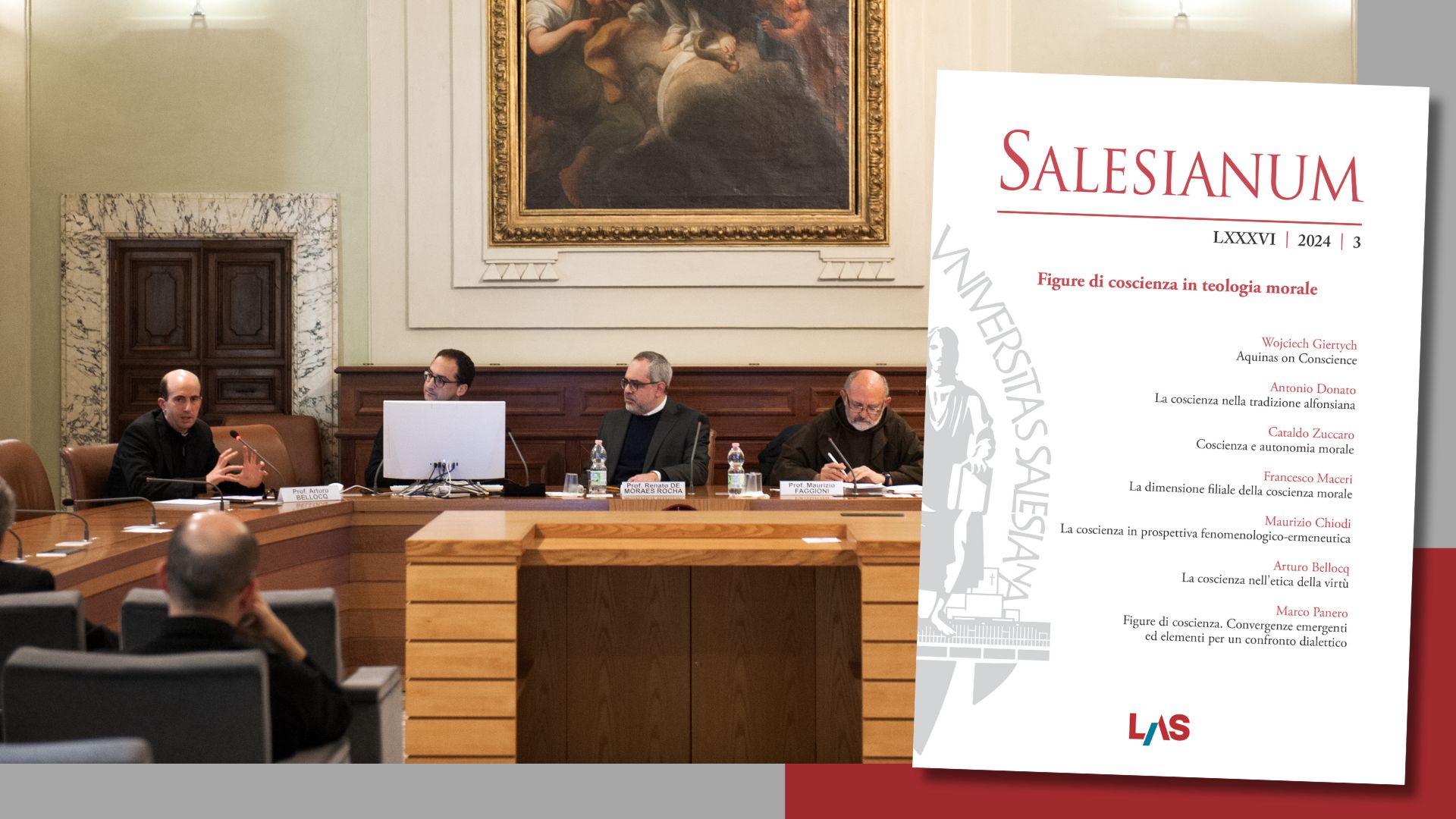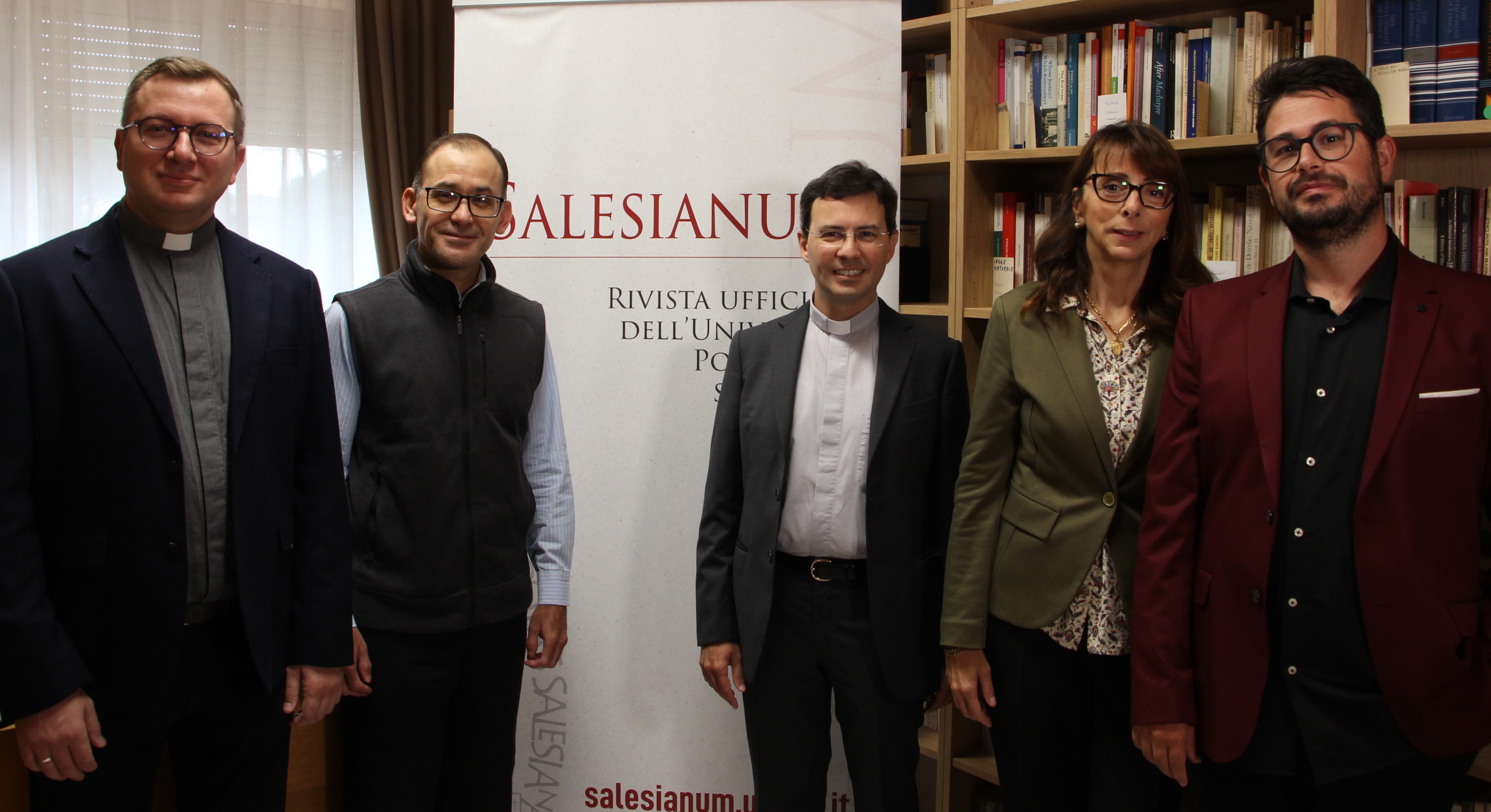La coscienza in prospettiva fenomenologico-ermeneutica
Conscience in a Phenomenological-Hermeneutic Perspective
Salesianum vol. 86 (2024) n. 3, 506-527Section: Studia
Received: 29-02-2024 - Approved: 04-04-2024
Sommario
La prima parte di questo saggio mette in luce alcuni nodi critici della storia del pensiero etico in occidente, con particolare attenzione ai temi della coscienza e della legge: il rapporto tra oggettivo e soggettivo, tra universale e singolare, tra storico (umano) e assoluto (divino). La seconda parte, mettendo a tema l’interpretazione biblica che costituisce il testo fondante della teologia cristiana, intende mostrare come la Scrittura chieda di ripensare la figura concreta della legge morale e la articolazione tradizionale del nesso tra legge e coscienza. La terza parte, partendo dalla coscienza come punto di accesso di ogni esperienza e riflessione – questo e il guadagno della fenomenologia (husserliana) – e caratterizzandola per l’atto della sua liberta – in cio consiste il guadagno dell’ermeneutica –, propone di pensare la coscienza come nesso virtuoso di passivita e attivita, identità e alterità, soggetto e atto, temporalita e narrazione, singolarita e universalita, appello e risposta, attestazione e ingiunzione, coscienza del bene e discernimento della norma morale.
Parole chiave
Coscienza | Legge | Discernimento | Alterità | Passività
Abstract
The first part of this essay highlights some critical nodes of the history of ethical thought in the West, especially with regard to themes of conscience and law: the nexus between objective and subjective, universal and singular, historical and absolute. The second part, focusing on the biblical interpretation which constitutes the founding text of Christian theology, wishes to shown how the Bible asks to rethink the concrete figure of moral law and the traditional articulation of the relationship between law and conscience. The third part, starting from conscience as an access point for every experience and reflection – this is the gain of phenomenology – and characterizing it through the act of its freedom – that’s the gain of hermeneutics –, proposes to think conscience as a virtuous nexus of activity and passivity, identity and otherness, subject and act, time and narration, call and response, attestation and injunction, conscience of the good and discernment of moral law.
Keywords
Conscience | Law | Discernment | Alterity | Passivity


